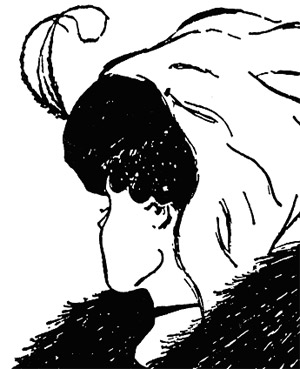Dear Bill,
I remember how excited I was when I discovered I was pregnant. My first child. Would you be a boy or girl?
Well, I had that one all figured out. I was going to have two boys and then two girls. You fit into my plans, as did your younger brother Steve. Your youngest brother Russ didn’t. It was time to reconsider.
You did cause me a bit of morning sickness, but after our first trimester of pregnancy, that stopped. In our ninth month, it was hard for me to bend over and move. You, on the other hand, were moving around all the time, even in the middle of the night. You’re still moving, aren’t you?
I was very careful with my diet. I did everything the doctor told me and gained only 20 pounds. I wanted to give you all the support I could.
I couldn’t wait for you to make your appearance on this planet, both for your sake and mine. You accommodated my wishes and arrived ten days early. Even though you were early, you were large – eight pounds, twelve ounces.
Your birth was not easy – on you, me, or my gynecologist. My water broke around 3 a.m. You didn’t make your appearance until around nine that evening, after eighteen hours of labor for both of us. You were born head first, but didn’t have enough room in my womb to turn around and be born in the normal position. Shortly afterwards, you had difficulty breathing. The pediatrician placed you in an isolette. I developed a kidney infection. We remained in the hospital for nine days.
I can’t tell you how mesmerized I was when the doctor placed you (this perfect little baby) on my belly. Five beautiful little fingers on each hand, five beautiful little toes on each foot. (I counted them.) Even then you were active. We looked at each other in amazement.
From the moment I brought you home, I adored you. I adored all my sons. They all seemed like such beautiful little miracles. I sang to you every night before you went to sleep. When you were old enough to understand, I read stories. After supper, the whole family sat at the dining room table and played Parcheesi, Monopoly, fish or crazy eights.
You rebelled against toilet training, but then you’ve always been a bit of a rebel.
When you were little, I can remember taking you on amusement rides in Ocean City, New Jersey. You were always more interested in how the ride worked than you were in the thrill. You raked leaves in the fall, jumped in them with your brothers, and got asthma. You were never much interested in my garden, but you did occasionally pop strawberries, raspberries, peas, and blueberries into your mouth.
You climbed trees and explored the woods near our Vineland, New Jersey home with your best friend, Mike Hemighaus. I was glad you and Mike found each other. He and his family were a positive influence in your early years.
We often spent weekends at Union Lake in Millville. Your father raced his Sunfish while I sat on the beach with you boys. Occasionally, your father would take all of us out on the lake in his largest sailboat. He taught you a lot about sailing.
We frequently spent summers at your father’s grandparents’ home on Penobscot Bay, Maine. It was easiest for your father and me to drive at night. You slept most of the way so we didn’t have to listen to “When are we going to get there?” When you were awake, we played games – finding signs with every letter of the alphabet, looking for license plates from every state in the union, playing I See Something Red, and of course, singing.
That Maine water was frigid, but you boys never seemed to mind. You jumped off the rock at the side of the house and explored the beach at low tide. Occasionally, we’d take boat trips to Spectacle Island or car trips to Bar Harbor.
You were always a good student. In high school, you joined the chorus. I got goose pimples listening to you.
When you decided to go to the Naval Academy, I was both proud and uneasy. What would the Academy do to my son? At the end of Plebe Summer, I found out. In just six weeks, you had transformed from a wet-behind-the-ears kid to a man. I remember hearing about a few escapades that were not repeated and getting stuck with a Naval Academy yacht (was it the Cinnabar?) on a sandbar in Delaware Bay.
Upon graduation, I could not understand why you chose the submarine service. Being stuck in a submarine for weeks on end seemed claustrophobic to me. “Submariners are the cream of the crop,” you explained. Even then, you valued excellence.
I remember the day you took us out on a Dependants’ Cruise from Norfolk Harbor. Because you were navigating, we got to stand with you in the conning tower. How fascinating to sail over the Bay Bridge Tunnel and out to the continental shelf, watch the dolphins through the periscope playing in the bow wave, and listen to them on the sonar.
I think you and Carol Anne had already decided to marry when you first introduced us. I remember thinking how pretty she was. A few years later, Sydney and Chan made their debuts onto the planet.
So here you are, twenty years later, two submarine commands under your belt, decorated with medals, and having visited Tokyo, Guam, the United Arab Emirates, Bahrein, Italy, Switzerland, France, and many other places you can’t talk about. You, Carol Anne, Syd and Chan have lived in Virginia Beach, Annapolis, Aiea, Hawaii, and Saint Marys, Georgia. You have navigated the North Sea, the Mediterranean Sea, the Atlantic Ocean, the Pacific Ocean, the Indian Ocean, the Adriatic Sea, and many other bodies of water you can’t talk about. You have also successfully navigated a world of character-building experiences (as you would say) and developed substantial wisdom.
Now, as you, Carol Anne, Syd and Chan look forward to a new and very different life, I want you to know I love you and wish you well on your journey.
Happy 48th Birthday, Bill. I am honored to be your mother.
© 2009 Janet Smith Warfield All rights reserved




Comment